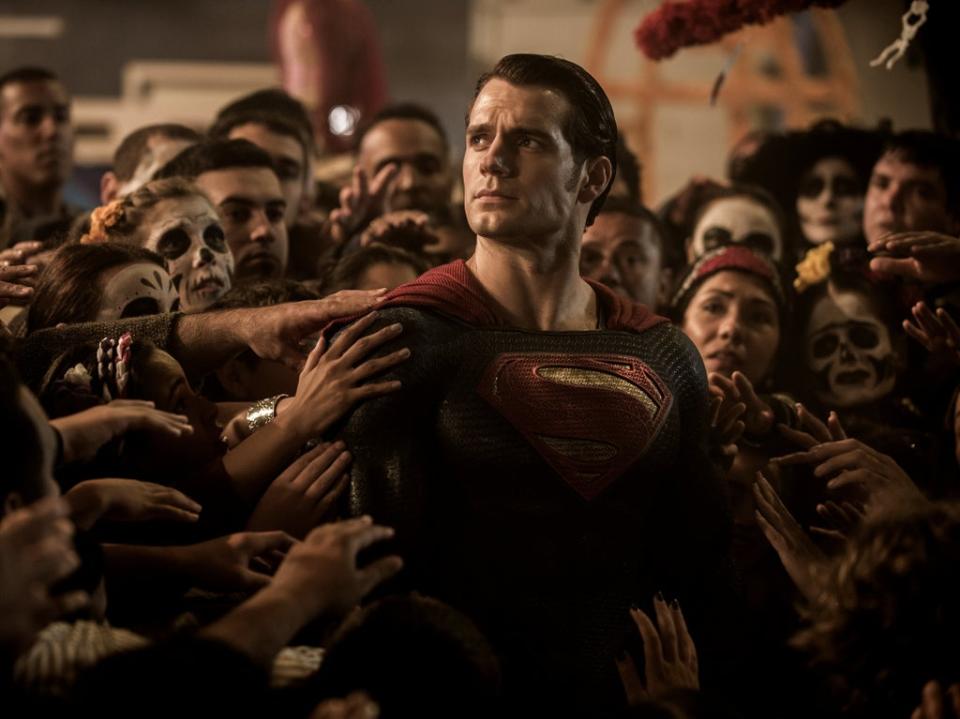13 movies critics hated but audiences loved, from Venom to Twilight
Every critic knows that the public isn’t always going to agree with you.
Often, this takes the form of a critical darling which proves too challenging or subversive for the mass market – films such as 2019’s science fiction drama Ad Astra, starring Brad Pitt.
However, other times, this works in reverse: the critical community dismisses a film’s merits, only for the general public to embrace it as a classic.
As with all forms of art, there’s not necessarily a “right” or “wrong” answer with any one film. People are free to enjoy what they enjoy, and that means critics and audiences alike.
But the internet era has allowed non-critics more of a voice than ever when it comes to letting their verdicts on a film be known.
Review aggregator websites including Rotten Tomatoes and Metacritic have allowed us to really see the discrepancies when audiences and critics disagree.
Here are 13 of the most divisive films in cinema – the ones that audiences loved but critics didn’t care for…
Batman vs Superman: Dawn of Justice (2016)
Zack Snyder’s 2016 follow-up to Man of Steel seemed as though it had a premise that couldn’t fail. Everyone loves Superman. Everyone loves Batman. Why not make ’em duke it out? Reviews for the film were absolutely damning, however, with everything from the acting to the script to Snyder’s direction taking a pounding from critics. Audiences were considerably warmer, however, with DC fans subsequently embracing the blockbuster as one of the better entries in the so-called “Snyderverse”.

Bohemian Rhapsody (2018)
There were plenty of valid reasons to criticise the 2018 Freddie Mercury biopic Bohemian Rhapsody: the dubious way in which it handled the late Queen singer’s sexuality, the widely mocked editing, even Rami Malek’s bizarre false buck teeth. It received more than its share of pans from the critical community, earning just 60 per cent on Rotten Tomatoes, but audiences nonetheless bought into its charms.
The Boondock Saints (1999)
Vigilante crime drama The Boondock Saints had a troubled release history – appearing in a handful of cinemas only fleetingly. Via home-video release, it became a big hit, however, eventually leading to a sequel in 2009. On Rotten Tomatoes, the film boasts one of the biggest ever discrepancies between critical consensus (28 per cent positive) and audience reviews (91 per cent).
Harlem Nights
This 1989 prohibition-era comedy, starring Eddie Murphy and Richard Pryor, was slaughtered by critics when it first came out. Audiences saw the funny side. On Rotten Tomatoes, the film boasts an audience rating of 80 per cent positive, compared to a measly 23 per cent for critics.

Joker (2019)
It would be unfair to suggest that Todd Phillips’s Joker – an origin story for the clownish Batman villain – was unanimously poo-pooed by critics. But there were plenty of damning assessments out there: this was a polarising movie that some reviewers outright despised. While it definitely had some haters among the general public too, they were more positive when it came to the film’s merits, and Joker earnt a considerably higher 80 per cent on Rotten Tomatoes from audiences. Joaquin Phoenix eventually won an Oscar for the role, the second person to win an Academy Award for playing the character, after The Dark Knight’s Heath Ledger.
Josie and the Pussycats (2001)
One of the very best movies on this list, Josie and the Pussycats was completely misunderstood by critics when it first came out. A sharply funny musical satire featuring an original tracklist of infectiously catchy pop-punk bangers, the film has enjoyed something of a reappraisal in the years since – but a lot of viewers had been calling it right since day one.
Kingsman: The Secret Service (2014)
Matthew Vaughn’s bombastic spin on the spy genre didn’t exactly blow critics away when it debuted in 2014. Maybe the jokes were too broad, the action too cartoonish. Cinemagoers were more impressed, with particular praise being lavished on one audacious fight scene set to Lynyrd Skynyrd’s “Free Bird”. It was so popular among audiences that there’s already been a Kingsman sequel and a prequel, with more sequels and spin-offs in development.

It’s a Wonderful Life (1947)
Frank Capra’s Christmas classic is now often cited as the best Christmas film ever made – and one of the best movies full stop. This wasn’t always the case, however. When the film was first released, the reception was distinctly unenthusiastic. It was only later, as the film was aired and re-aired on TV over the festive period, that it began swelling in popularity and claiming the recognition it so richly deserved.
The Lion King (2019)
Critics generally hated Disney’s fundamentally unnecessary CGI re-vamp of animated children’s classic The Lion King. The vocal performances weren’t as good; the animation was realistic-looking but bleakly unexpressive; the whole thing reeked of corporate cynicism. And yet, audiences showed up in droves, and went away happy – the film scores 88 per cent from audiences on Rotten Tomatoes (compared to just 52 per cent from critics).

Mamma Mia! (2008)
Much like Bohemian Rhapsody, Mamma Mia! was written off by the critical community for being too camp, too tacky – there was a little too much mustard on the sandwich. Audiences, however, got exactly what they expected from an Abba musical, and Mamma Mia became a fast favourite of sing-along screenings and rowdy (mostly female) group viewings.
Saw (2004)
Horror films have always entertained a slightly unique relationship between critic and audience; often, a rather snobbish distinction is drawn between “elevated” fare and more grimy or exploitative horror, when the latter has in fact been at the heart of many of the genre’s biggest success and innovations down the years. Saw was snubbed by critics when it first came out, but audiences saw things differently. James Wan’s modest gorefest eventually blossomed into one of the 21st century’s biggest horror franchises.
Twilight (2008)
The first movie adaptation of the hit vampire novel series was never going to flop – the fans among a particular age demographic were legion. Critics panned the high school-set fantasy, however, decrying its flaws almost unanimously. Audiences took to it much more positively, though, and they might just have been right. In Robert Pattinson and Kristen Stewart, Twilight managed to snare two of the standout acting talents of a generation.
Venom (2018)
Critics weren’t sure what to make of Venom, the Marvel antihero thriller in which Tom Hardy plays Spider-Man villain Eddie Brock, who becomes entwined with an alien symbiote. It was like something out of the mid-Noughties, critics decided – brash, obnoxious and lowbrow. But audiences vibed with it much more; on Rotten Tomatoes, the audience score is 80 per cent positive, compared to just 30 per cent for critics. It’s no surprise Venom already spawned one successful sequel, with another in the pipeline.

